Kavita started her educational journey by taking admission to the B.A. (Honours) and then opting for M.A. (Economics). Later on, she gave IAS exams and cleared it. This accomplishment gave her an entry to the esteemed class of 5000 IAS officers in India.
WHAT IS AN IAS OFFICER?
India has around 5000 IAS officers approximately. Kavita Singh is one of those 5000 IAS Officers. The exam required to clear the IAS Exam is called UPSC. UPSC is considered one of the toughest exams in the country and to clear that exam is no small feat on its own. There are lakhs of students who sit for this exam. I would also like to highlight the fact that, students start preparing for this exam even before high school sometimes. Becoming an IAS officer is a great achievement in this country. It is a matter of great pride for the family to have an IAS officer come out of their family. But for a woman to achieve this feat is no ordinary task.
The destination “IAS” itself adds so much respect and glory to the person’s name. Indian Administrative services are one of the 3 arms of the All India Services, along with Indian Police Services (IPS) and Indian Forest Services(IFS). An IAS is a part of the permanent bureaucracy of the nation and is an inseparable part of the executive of the Government of India. It always remains neutral and guarantees administrative continuity to the ruling party.
CURRENT POSITION and INITIATIVE
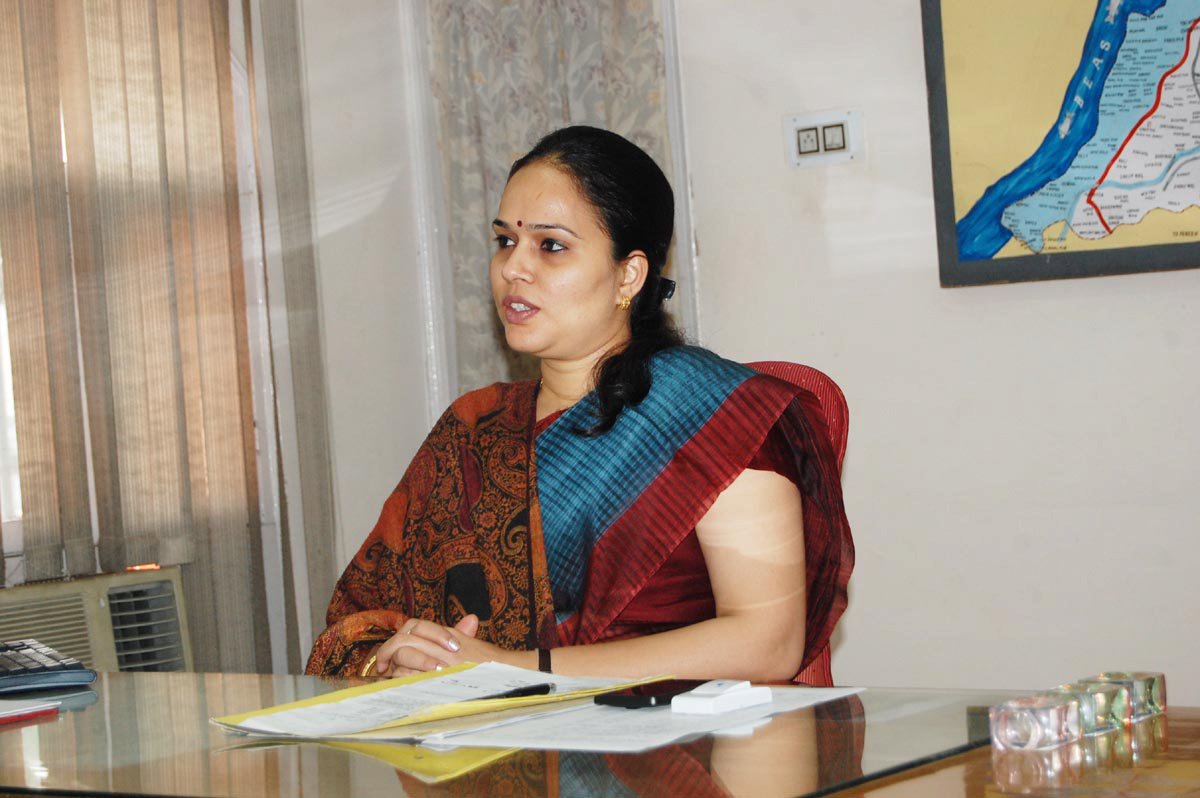
Source : LBSNAA Website
Kavita Singh overcame all such hurdles in life and took the position of an IAS. Currently, she has been placed at the disposal of the Department of Housing and Urban Development. She has also been appointed as the Chief Administrator of Greater Mohali Area Development Authority (GMADA), SAS Nagar & in addition to Direction Town & County planning relieving Shri Ajoy Sharma IAS.
Earlier Kavita Singh served as the Director of Social Security and Development of Woman and Children. This esteemed lady along with Raju P. Srivastava started a program to provide blankets, clothes, and books to the needy children. Over 500 children have been helped and giving better opportunities to learn and live so far under this scheme.
IAS Kavita Singh is not only a powerful woman but is also a lady with a kind heart. She is always mindful and taking care of the destitute. Even during she is always prompt and alert in her decisions. During winters, she makes sure to keep the animals warms by providing shelter and many other needed things to their caretakers. She always had a soft spot for animals and hence leaves no chance to help them. She arranges special shelters and veterinarian facilities for stray animals.
HELPING NATURE
Poor Children are always under her shadow too. She is famous for providing comfort among poor children. Her whole project started as an experiment, in order to encourage people to help the needy. But slowly but surely this movement has taken an altruistic form, helping hundreds of kids and adults in Children & Observation Homes. All these homes are also run by her department too. She is a woman hero and savior for many.
It all started just before Diwali that they decided to personalize this initiative, and asked their employees to contribute material things which they themselves haven’t used or have little use for. Message and notification spread like wildfire prompting many to donate multitudes of old and new stuff. A chain reaction was started and a continuum was formed. Employees spread the message further to colleagues and friends in the service area. The initiative also got the social attention and many Whatsapp groups were formed in order to fulfill the purpose.
A huge response followed their actions. Books, Stationary, clothes, health equipment, etc were donated by many contributors making this program a huge success.
Though the government has provided budgetary allocation for the basic facilities to the children in these homes, it is never enough. There are hundreds of children residing in such homes. Belonging from poverty-stricken families they have never seen comfort and stability. To provide a better future, stable living conditions, and a healthy environment becomes the government’s responsibility to care for such souls. Then angel souls like Kavita Singh come to their rescue and give them hope.
HER HEROIC PERSONALITY
The heroic saga of Kavita Singh doesn’t end here. She also announced that the department is currently thinking of ways to secure the future of the children who have left or will these homes after coming of age (18 years plus). They said that she hopes that children will be able to take up higher education and manage their own lives but being a productive individual of society.
Planning for making a personal insurance plan for such children is also underway, so they can use it whenever they need it in life.
Kavita Singh gives a message to the society that if a woman makes her mind to do something, then nothing can stop her. She can be the wave of change she wishes to see. We all should take an example from her brilliant story, in order to motivate and inspire ourselves. The way she has become a mother figure for many children across the state and her selfless effort to improve their lives has earned her respect only a few can in their lifetime.
Today a woman is powerful and has the capability to change the toxic mindset of people about a woman. IAS Kavita Singh is not only being dedicated to her duty but has also been putting sincere efforts to provide a satisfactory life for poor children.
Also learn about eProcurement Punjab – How does it Work?
Education
NITTTR Chandigarh: Learn More About the Institution

The National Institute of Technical Teachers Training and Research, or NITTTR, comes under the Ministry of Education. The institution provides education and training programs to the faculty and staff of the IT sector. NITTR Chandigarh provides the best training expertise to the staff of technical education. Let’s learn more about the institution.
About NITTTR Chandigarh
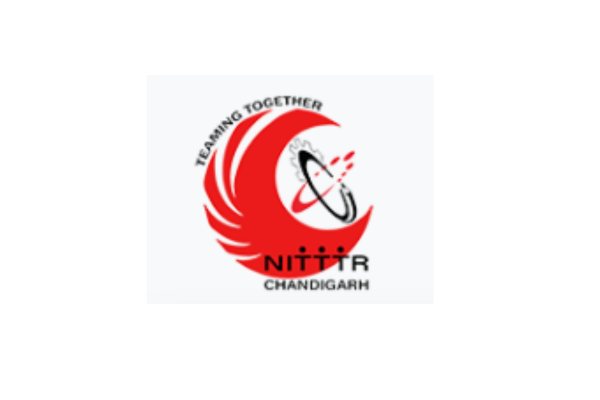
The institution is established to fulfill the need for a quality training center. With a better teaching staff, the students will be able to meet the rising standards amidst the rapid industrialization of India. The institution falls under the Ministry of Human Resource Development.
NITTTR Chandigarh is one of the four Institutes in India. The other three are in Bhopal, Chennai, and Kolkata. All four were established in the year of 1967. NITTTR Chandigarh was a collaboration with the Royal Netherlands Government until 1974.
Additionally, the institute covers the requirement of education in polytechnic for the entire northern region. The institute covers 8 states which include:
- Himachal Pradesh,
- Haryana,
- Punjab,
- J&K,
- Rajasthan,
- Uttar Pradesh,
- Uttarakhand
- Delhi
The institute was built to provide training programs for teachers of polytechnic while promoting curriculum development for these states.
Various Education and Training Programmes
All the programs focus on technical education and enhancing the teaching skills of technical teachers. Moreover, the institute also focuses on programmes related to Entrepreneurship Development, and Digital Instructional Material Development. Besides, the institution also focuses on emerging areas like Robotics, 3D Printing, Smart Grid Technologies, 5G Communications, Cyber Security, Data Science, and many more.
Furthermore, the institute also includes various courses initiated by the government of India:
- NEP 2020
- Unnat Bharat Abhiyan
- Atmanirbhar Bharat
- PMKVY
NITTTR Chandigarh offers various long-term and short-term training programmes that aim at providing the best training to recruits while also enhancing teaching methodologies. The teachers learn to improve their skills and become industry ready. If you ever get the chance, you should visit Pushpa Gujral Science City: Ticket Prices, Timings, and More, and observe how technology meets science.
Long-Term Training Programmes (M.E. Programme)
These long-term programmes or courses provide an in-depth study of the advancing technicality of India. The need for professional engineers, technicians, and skilled workers is very important for the rapidly changing IT sector of India. Therefore, the institution provides a master’s degree for various courses. All the courses for a master’s degree are affiliated with Panjab University for 2 years.
Specialized Courses
| M.E. in Engineering Courses | Specialization |
| Computer Science and Engineering | IoT (Internet of Things) |
| Electronics and Communication Engineering | AI |
| Mechanical Engineering | Robotics |
Regular/Modular Courses
| M.E. in Engineering | Courses |
| Mechanical Engineering | Manufacturing Technology |
| Civil Engineering | Technology and Management |
| Electrical Engineering | Instrumentation & Control |
| Electronics Engineering | Electronics & Communication |
After obtaining a bachelor’s degree in various disciplines, the Institute, under the guidance of the All-India Council for Technical Education, New Delhi, and Panjab University introduced programmes for master’s degrees in 2005.
Admission Criteria
The graduates are admitted based on their GATE score. The applicant can download the form from here. The details regarding the admission process will be mentioned on the site. 60% of the seats for Regular programmes are allotted through CCMT-2020.
Short-Term Training Courses
These courses are different every week so you should visit the website for further details.
| Department | Courses |
| Civil Engineering | Non-Destructive Techniques, Road Construction Technologies, Auto CAD Application |
| Computer Science and Engineering | Cybersecurity Intelligence (IBM Collaboration), Python, Mastering Linux |
| Mechanical Engineering | Additive Manufacturing for Bio-Medical Applications, Advanced Machining Processes, Auto CAD |
| Rural Development | Earthquake Risk Management, Organic Farming |
| Applied Science | Fibre Optic Test and Measurements |
| Electrical Engineering | Raspberry Pi and its Interface, Big Data Analytics in Smart Grid |
| Media Engineering | AR VR Applications, OBE, SAR, and NBA |
Fee Structure of NITTTR Chandigarh
NITTTR Chandigarh is a government institution and thanks to that the fee is less than that of private institutions. Let’s talk about the fee structure of the courses in the institution.
| Fee Detail | For M.E. Regular Programmes |
| Admission Fee (one time) | Rs. 2000 |
| Programme Fee (Semester wise) | Semester 1- Rs. 40,000
Semester 2- Rs. 40,000 Semester 3- Rs. 25,000 Semester 4- Rs. 25,000 Total: Rs. 1,30,000 (for 2 years) |
| Continuation Fee | Per Semester- Rs. 5000 |
| Pre- Thesis and Final Thesis Exam | Rs. 2000 (per exam) |
| Security | Rs. 7000 (one-time and refundable) |
| Insurance Fee | Rs. 500 (once in 2 years) |
For further details about the fee structure, visit https://www.nitttrchd.ac.in/core/FeeDetails.pdf
FDP Login (Applying for STC)
Faculty Development Programmes are the same as short-term programmes. You can apply for these short-term courses by the following steps:
- Create your account through one-time registration from the official website.
- Verify your contact number through OTP.
- After login, you have to click on Apply for STC in the left panel.
- Fill in the specific details to search for the course.
- Apply for the course you want.
- Download the application form. Take out a copy and get it signed by the authority.
- Upload the form under the Upload Sponsorship Menu.
- A confirmation will be sent to you.
- Join the online/offline courses.
- You will receive a certificate after completing the course.
In case you have further issues or queries you can mail at fdp.support@nitttrchd.ac.in for any details.
How to Enroll for Ph.D. Programmes?
The institution also provides Ph.D. programmes under the following categories:
- The QIP Scheme of AICTE
- Direct Admission Category
- Industry Sponsored fellowship
The scholars can enroll in these programmes under the following universities as approved:
Panjab University
IK Gujral Punjab Technical University, Jalandhar
JC Bose University of Science and Technology, Faridabad
Location of NITTTR Chandigarh
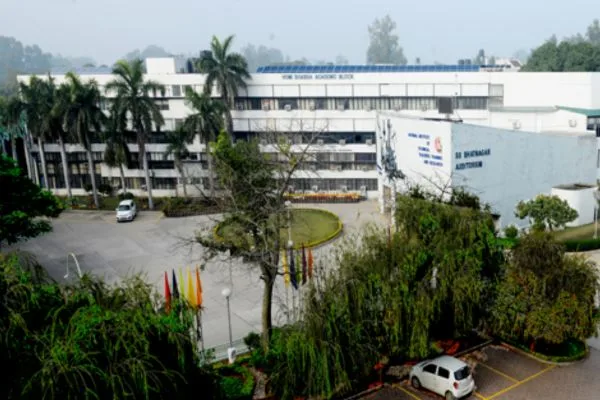
NITTTR Chandigarh is located in Sector 26, Chandigarh. For any query, you can either visit the institution or contact them on the following number and email.
Director Office
Phone number- 91-172-2792369, 91-172-5061563
Email- director@nitttrchad.ac.in, diroffice@nitttrchd.ac.in
Website: www.nitttrchd.ac.in
Final Note
NITTTR Chandigarh is a well-established institute for training in technical education. A growing India requires the best teachers to teach the youth about the technical aspects and engineering. The institution aims to become a leading institute to promote the vision of excellence in the technical sector. It has provided excellent education and training programs to the faculty.
Government
PGI Chandigarh – Admissions, Open Hours, Services, and More (Updated 2024)
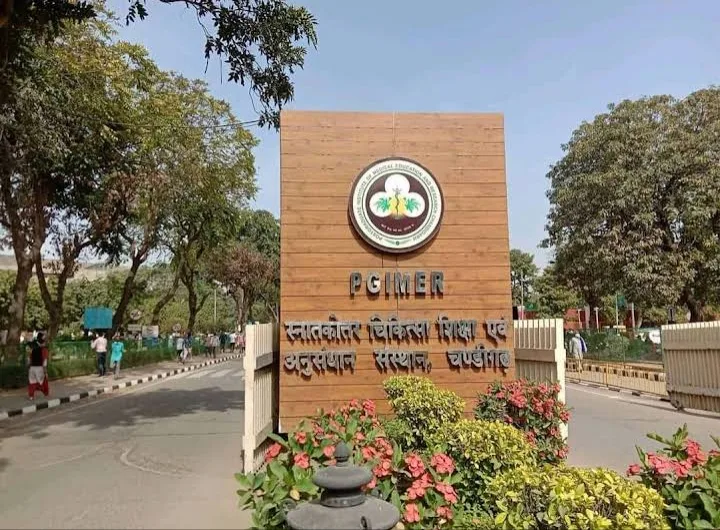
Image by: Gurjeet Singh
PGIMER or Pgi Chandigarh is the most reputed medical institution in Northern India. It is a public medical university with the status of Institute of National Importance in Chandigarh, India.
This medical institution is the leading medical institution treating patients from the states of J&K, Himachal Pradesh, Punjab, Haryana, Uttrakhand, Uttar Pradesh, & Bihar. Other than treatments, this medical institute is also a topmost choice for medical students to complete their post-graduate and doctoral degrees. From MS, MD to Doctor of Philosophy, the institute offers opportunities to study for higher education.
This post will guide you all about the Post Graduate Institute of Medical Education & Research. From history, location, open hours, admissions, and treatments, you will find almost all the important details related to this medical institution.
History of The Institute
Pgi Chandigarh came into existence in 1962. When it was inaugurated by Pt. Jawahar Lal Nehru in 1963, it was named “Nehru Hospital.” It was also given the status ‘Institute of National Importance’ from April 1, 1967 onwards. Furthermore, it also became an autonomous body functioning under the Ministry of Health and Family Welfare, Government of India, under the Act of Parliament in 1967.
The institute was founded by Prof. Santokh Singh Anand, Prof. Tulsi Das, Prof. BN Aikat, Prof. PN Chuttani, Prof. Bala Krishna, and Prof. Sant Ram Dhall.
The PGIMER institutes come into existence with the aim of providing high-quality patient care, education facilities, and training of the medical staff and personnel, covering every branch of the health sector. It also aims to focus on basic research and to meet the country’s requirements for highly qualified medical teachers in the field.
Admissions
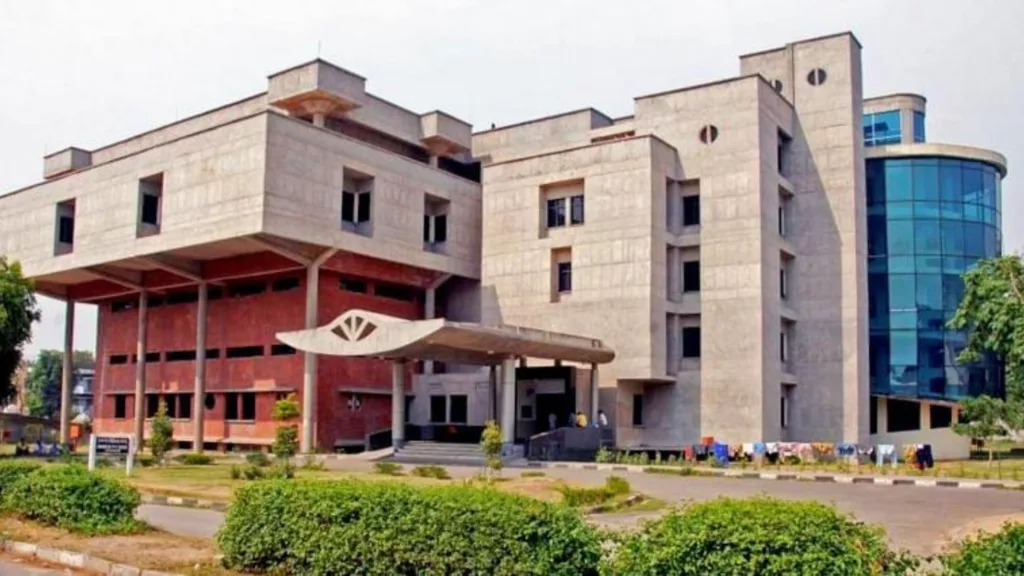
Image by Sandeep Kumar
The admission process of this institute is conducted twice a year. The institute offers programs for graduate and postgraduate students. Applicants from all over the country apply for a seat at this prestigious medical institution.
You will find notifications in the months of September or October and March or April. Then, there will be an entrance exam that is usually held in the months of December and June.
Here is the list of the courses that have been offered by this renowned institution in Chandigarh.
| Course Name | No. of Seats | Contact Number |
| MD/MS | 610 | 0172 – 275-5562 |
| MDS | 18 | 0172 – 275-5569 |
| MHA | 05 | 0172 – 275-5569 |
| B.Sc (Paramedical) | 257 | 0172 – 275-5561 |
Overall, there are more than 20,000 medical graduates competing to get admission to this institute, out of which only around 2% of the candidates are selected.
The competitive exam for PGI admission is one of the toughest exams in the country.
For MD or MS programs, there will be an entrance test consisting of 250 MCQs, including the subjects from the MBBS course. The detailed information related to the admission process can be found @here.
For admission advertisements, you can search for the official notice @here.
Recruitment
PGIMER Chandigarh is not only a center of excellence in medical education and patient care, but also a significant employer in the region.
The institute regularly advertises vacancies for medical, administrative, and support staff. Recruitment is transparent, merit-based, and follows reservation policies as per the Government of India norms.
Interested candidates can find job notifications on the institute’s official website and leading newspapers. The selection process typically involves written tests and interviews, depending on the nature of the job.
For current job openings, you can check out the official recruitment portal of PGI Chandigarh @here.
Patient Care Services

Image by Lalit Kumar Malodia
If we talk about the patient care services offered by PGIMER Chandigarh, there are different types of facilities provided. From OPD and emergency checkups to online pre-registration services, this medical institute is always looking forward to providing timely treatments to patients.
Let’s have a detailed look at patient care services and the departments running under this hospital.
- OPD
- In Patient Services
- Emergency
- Lab Reports
- Online Pre Registration
- Teleconsultations Services
- Donate For Poor Patient
Now, let’s have a quick look at the departments under PGIMER Chandigarh.
- Anesthesia
- Anatomy
- Biochemistry
- Biophysics
- Biostatistics
- Cardiology
- Cardiovascular & Thoracic Surgery
- Clinical Hematology and Medical Oncology
- Community Medicine and School of Public Health
- Cytology & Gynaecological Pathology
- Dermatology Venereology Leprology
- Dietitics
- Endocrinology
- Experimental Medicine & Biotechnology
- Forensic Medicine
- Gastroenterology
- General Surgery
- GI Surgery, HPB, and Liver Transplantation
- Hematology
- Hepatology
- Histopathology
- Hospital Administration
- Immunopathology
- Internal Medicine
- Medical Microbiology
- Medical Parasitology
- National Institute of Nursing Education
- Nephrology
- Neurology
- Neurosurgery
- Nuclear Medicine
- OBS & Gynecology
- Ophthalmology
- Oral Health Sciences (Dental)
- Orthopaedics
- Otolaryngology (ENT)
- Paediatric Medicine
- Paediatric Surgery
- Pharmacology
- Physical and Rehabilitation Medicine
- Plastic Surgery
- Psychiatry
- Pulmonary Medicine
- Radio Diagnosis and Imaging
- Radiotherapy and Oncology
- Renal Transplant Surgery
- Telemedicine
- Transfusion Medicine (Blood Bank)
- Translational and Regenerative Medicine
- Urology
- Virology
Other than these departments, PGI Chandigarh has all the facilities that allow the doctors to treat their patients well. You can easily get informed about the different departments and the hospital charges for several tests and services on the official portal of PGIMER @here.
Open Hours
The hospital consists of a multitude of departments and every section has different timings. For emergency cases, the institute is open 24 hours.
For other departments, you can easily find out on the official website of the institute @here.
How To Reach?
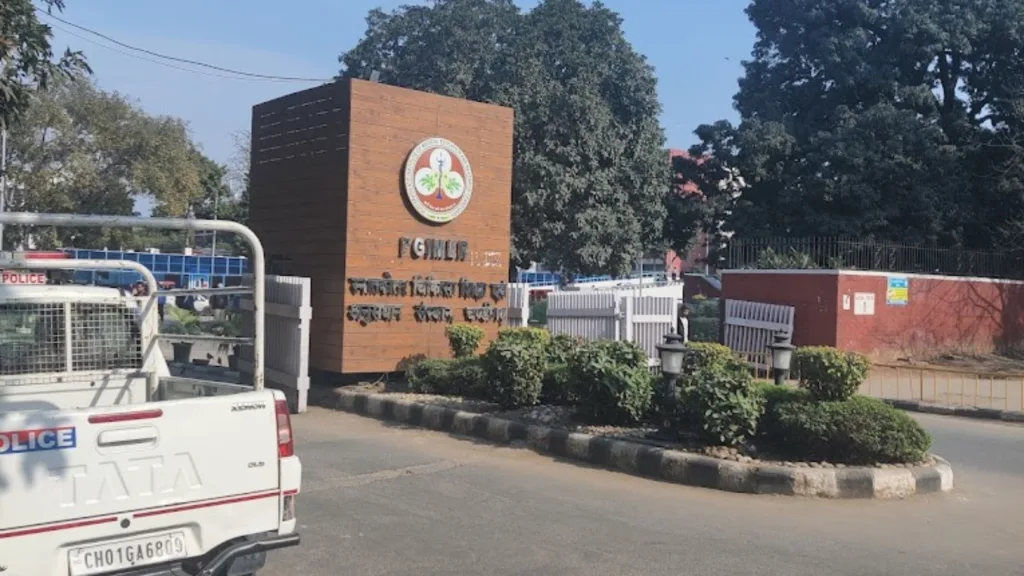
PGIMER Chandigarh is easily accessible from various parts of the city and neighboring states. It is well connected by road, and the nearest airport is Chandigarh Airport, approximately 14 km away.
For those traveling by train, Chandigarh Railway Station is about 10 km from the institute. Regular bus services and taxis are available from these points to PGIMER.
For local residents, auto-rickshaws and app-based cab services provide convenient options for commuting.
Stays Near PGI Chandigarh
As a government-owned institute, the PGIMER also faces rush hours and sometimes the number of days to provide proper treatments to the patients. For those, who are critical or referred to the hospital from other cities, they sometimes need some personal rooms or lounge area, where they can stay for a long time.
There are some hostels and resthouses in the PGI, where you can get a room based on your stay and the treatment plan for the patient. The information about these resthouses is not available online and one can get to know about that by physically having a word with the authorities.
Apart from the stays inside the PGI Chandigarh, you can also look out for some private Dharamshala, or BNBs near the hospital at a reasonable price.
Ending Note
PGIMER in Chandigarh consists of one of the best medical professionals in the country, who are continuously striving to contribute to the world of medicine. The staff here focuses on patient care and provides them with all the facilities that are necessary to complete the treatment.
From being a hub of study for medical professionals to providing cures to seriously ill patients, PGI Chandigarh has served the patients with dedication and care.
There is no doubt that this medical institute is not only the best in Chandigarh but also in the northern part of India for treatment as well as gaining proficiency in the field of medicine.
Government
Dispensaries In Mohali For Affordable Treatments In 2024

Mohali, a city full of vibrant markets and a hub for students, has also improved its presence in terms of medical facilities. The Punjab government has impeccably excelled in providing medical facilities to the city’s population. One such achievement can be seen in the improvement of dispensaries in Mohali.
This comprehensive guide will take you on a tour of some of the easily accessible dispensaries in the city that offer easy access to medicines, and medical consultancy to people from all walks of life.
So, let’s delve in!
1. Dispensary, Phase 3B-1, Mohali
Address: 840, Mohali Stadium Rd, Phase 3B-1, Sector 60, Sahibzada Ajit Singh Nagar, Punjab 160059

The first name in our list is the government dispensary in Phase 3b1, Mohali. Here, people who are underprivileged can come to these clinics for their basic medical treatments.
This dispensary comes under the Punjab Government and it is successfully helping people get the right treatment for their medical issues. Patients, especially the older ones, consider this dispensary a great option for pocket-friendly medical assistance.
You can consult here with expert doctors and can take several medicines and tests, at a very affordable price. So, you can visit this dispensary without any stress about expenses and get yourself treated for several medical issues.
2. Government Dispensary, Sector 61, Mohali
Address: Mohali Stadium Road Sector 61 Sahibzada Ajit Singh Nagar, Sahibzada Ajit Singh Nagar, 160047
Open Hours: 08:00 AM to 02:00 PM

Image by Sandeep Bhardwaj
The next government dispensary on the list is the one in Phase 7, also called Sector 61, in Mohali. Here you can seek out treatment for several health issues.
Whether you are looking for medicines for cough, or fever, or wish to undergo some routine checkups, this dispensary will help you to provide all the important benefits.
Another important factor that makes this dispensary popular among the locals is that you can visit here for a free medical check-up and treatment camp on the 9th of every month. The camp is only organized for pregnant women in the area. You will get free consultation and medication for any complication in this camp.
3. Government Dispensary, Phase 9, Mohali
Address: MPWM+3F5, Phase 9, Sahibzada Ajit Singh Nagar, Lamba, Punjab 160047
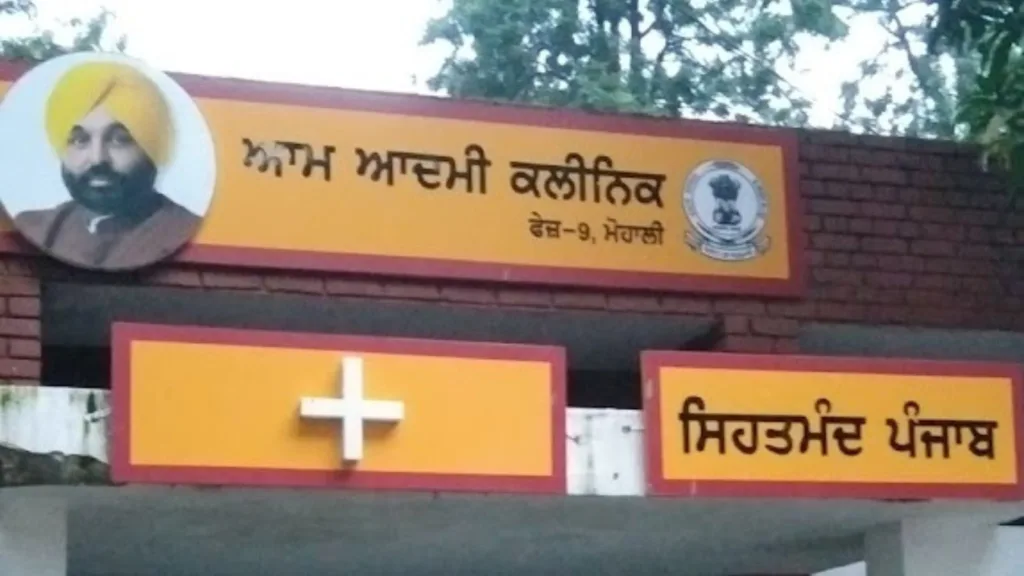
Image by Md Saphid
This government dispensary is treating people at a minimal cost. As it is also owned by the Punjab government, the medicine here provided by the dispensary is free of cost.
The medical practitioners here are the best in their profession and listen to the patients very calmly. However, there are some reviews that showcase the arrogance of the doctors here.
Overall, you can get treated at a very affordable cost and almost zero expense on tests and medicines.
4. Dispensary, Gurudwara Singh Shaheedan, Sohana, Mohali
Address: MPR6+528, Inside Gurudwara Building, Sohana, Sahibzada Ajit Singh Nagar, Punjab 140308

Image by Baljinder Singh
The next on the list is the dispensary operated under the popular Sohana Gurudwara, or Gurudwara Singh Shaheedan, in Mohali.
The services and medical treatments offered here are free of cost and you can get one of the best treatments for your medical problems. What makes this dispensary different from others is the location.
You can visit here for a free consultation as well as also seek blessings from the Gurudwara Sahib. This dispensary not only treats patients but also organizes frequent blood donation camps. Here, you can easily get medical advice for your problems from experienced doctors.
5. Dispensary Lakhnaur, Mohali
Address: MMRM+RWR, Unnamed Road, Lakhnaur, Sahibzada Ajit Singh Nagar, Punjab 140307
Open Hours: Monday, Wednesday, & Friday – 09:00 AM to 10:00 PM, Tuesday & Thursday – 09:00 AM to 01:00 PM, Saturday & Sunday Closed

Image by Jasvir Sony
The second last on the list is near the Sohana Gurudwara. It is located in Lakhanur Mohali and is only open for five days a week. This center is one of the well-managed centers in terms of medical assistance and maintaining cleanliness.
Just like all the dispensaries in Mohali, this place also provides treatments, consultations, tests, and medication either free of cost or at a very minimal cost.
From headaches to body aches, fever to any allergy, or any other serious medical concerns, you can reach out to the medical officers appointed here by the government of Punjab from Monday to Friday as per the dispensary timings.
6. Government Homeopathic Dispensary, Phase 11, Mohali
Address: MPJW+CMC, Phase 11, Sector 65, Sahibzada Ajit Singh Nagar, Punjab 160062

Image by Rajeev Sharma
Another dispensary on the list is the Punjab Government’s Homeopathic dispensary, located in Phase 1, Mohali on the Mohali Stadium road. As per the locals, this dispensary opens around 08:00 AM and consults patients till 02:00 PM from Monday to Saturday.
The doctor here is very polite and listens to the patient’s issues carefully. From the treatment of basic health issues to the testing of the full body, this dispensary covers all.
All you have to do is to take a token for meeting the doctor. The dispensary also provides free medicine to the patients and medical recovery kits to those who are suffering from the COVID-19 virus.
7. Civil Dispensary, Phase 9, Mohali
Address: MPWM+2F3, Phase 9, Chandigarh, Lamba, Punjab 160062
Open Hours: Monday to Sunday – 09:00 AM to 03:00 PM

Image by Vivek Gohel
This is also one of the dispensaries in Mohali, located in Phase 9. If you are also facing any issues and wish to get treatment without affecting your pocket, then you can come to this place.
As run by the government of Punjab, you can get treatment for all your medical needs under this roof. This dispensary also has mixed reviews. While some patients mentioned it as a friendly and great place for free treatment, some stressed the rudeness of the staff.
8. Civil Dispensary, Phase 5, Mohali
Address: 1179, Mohali Stadium Rd, Phase 5, Sector 59, Sahibzada Ajit Singh Nagar, Punjab 160059
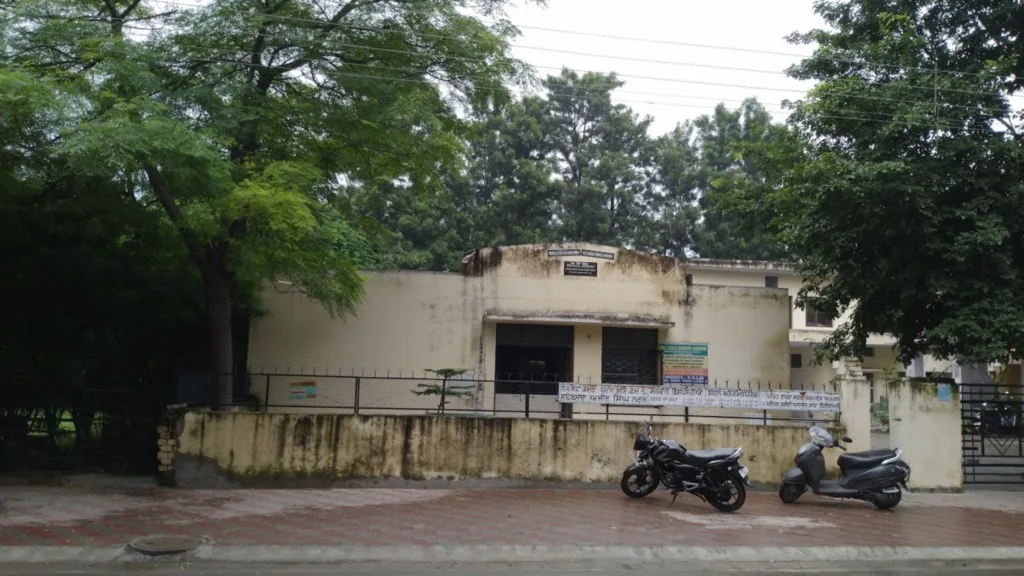
Image by Abhishek Koundal
This dispensary remains open from 08:00 AM to 03:00 PM from Monday to Saturday every day for patients. From getting treatments for basic health issues, and body tests, to getting dressing on wounds, you can visit the dispensary at the mentioned time.
Here you can find the doctors who are implementing the best of their medical knowledge and providing relief to the patients with their expert opinions.
If you reside in Phase 5, then this dispensary is easily accessible to the locals at walking distance. You can easily get yourself accessible to all the basic medical facilities.
9. ESI Dispensary, Phase 2, Mohali
Address: PPFH+R2G, Gian Jyoti Rd, Phase 2, Sector 54, Sahibzada Ajit Singh Nagar, Punjab
Open Hours: Monday to Saturday – 10:00 AM to 08:00 PM

If you are insured and covered under the ESIC department, then you are eligible to get benefits from this dispensary. This ESI dispensary in Phase 2, Mohali, will help you to get treatment for all kinds of medical issues.
Whether you want to have treatment for any ongoing medical issue or seek any medical assistance for injuries, this dispensary is going to treat you well if you come under the ESIC department.
Only COVID-19 vaccines were accessible to every person in the area, whether they were insured or not. For other medical treatments, you need to look out for other dispensaries or government hospitals in Mohali and Chandigarh.
10. Dispensary-Urban Primary Health Centre, Phase 1, Mohali
Address: PPJ9+CP2, Franco Hotel Road, Phase 1, Sector 55, Sahibzada Ajit Singh Nagar, Punjab 160055
Open Hours: Monday to Saturday – 08:00 AM to 02:00 PM, Sunday Closed

Image by Satwinder Bhamra
The next on my list is the Urban Primary Health Centre in Phase 1, Mohali. Located near Franco Hotel in Phase 1, this dispensary is open six days a week, from Monday to Saturday from 08:00 AM to 02:00 PM. This place is closed on Sundays.
For basic medical care, the locals here can take consultation for free from the on-duty medical officer as it is also operated under the Punjab government. As a citizen of Punjab, you are liable to get free treatment and medications from this dispensary.
Final Note
Dispensaries in Mohali are available in almost every sector of the city. What makes these dispensaries different is the amenities they offer to the patients.
These dispensaries are not like any big government or private hospitals of Mohali but treat the patients for all their medical issues except any chronic or major complications. If you think that you just want a routine checkup, these dispensaries are a great option for people to get treated at affordable rates.
-

 Property5 months ago
Property5 months agoWho Lives In Homeland Mohali: Punjabi Celebrities, Business People…
-

 Jobs3 years ago
Jobs3 years agoTop 20 IT Companies in Mohali
-

 City Guide1 year ago
City Guide1 year agoTop 12 Rooftop Restaurants in Mohali to Enjoy Cityscapes
-

 Education1 year ago
Education1 year agoTop 10 French Classes in Mohali – DELF & TEF Certified for Immigration
-

 Entertainment1 year ago
Entertainment1 year agoTop 11 Punjabi Comedians of All Time
-

 City Guide1 year ago
City Guide1 year agoTop 10 Romantic Places in Mohali to go on a Date
-

 City Guide1 year ago
City Guide1 year agoFull List of Public & Private Swimming Pools in Mohali & Chandigarh
-

 Sports1 year ago
Sports1 year agoMohali Stadium | Punjab Cricket Association
